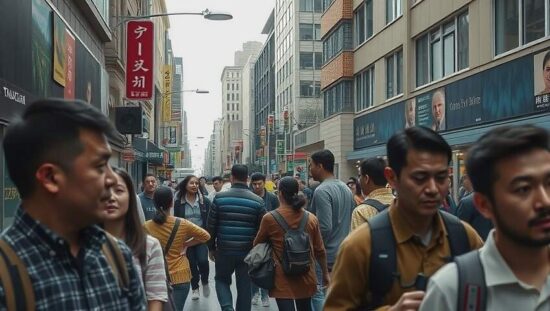The escalating concerns regarding safety and security in public spaces, particularly at train stations, have prompted a nuanced response from Felix Banaszak, leader of the Green Party. While acknowledging the need for a heightened police presence in certain areas, Banaszak cautioned against simplistic, technology-driven solutions and emphasized the importance of addressing the root causes of social unrest.
Speaking to RTL and n-tv, Banaszak conceded that increased policing is “certainly needed in some places” adding a surprising call for a broader expansion of state involvement. “And I would even go a step further. It needs more state, generally, in these places” he stated, clarifying that this does not solely equate to increased police numbers but also a bolstering of social work initiatives. “It means strengthening social work, meaning that we, as a society, proactively reach out to and support people before they escalate into problematic situations”. He specifically linked the security issues prevalent at train stations, irrespective of immigration concerns, to failures in preventative social programs.
Banaszak expressed considerable skepticism towards proposals for Artificial Intelligence-powered surveillance cameras at train stations, a suggestion recently put forward by the Federal Association of German Criminal Investigators. He dismissed the concept as a “cash cow” that offers a superficial remedy, warning against the assumption that cameras alone resolve complex societal challenges. “The problem is that whenever we talk about security, the tried-and-tested, overhyped solutions of the last few years and decades are brought out. If a camera hangs there, that doesn’t solve the problem”. The Green leader stressed the critical need for human oversight, emphasizing that cameras are ineffective unless personnel are actively monitoring footage and prepared to intervene.
His party, he highlighted, has historically prioritized avoiding blanket surveillance deployments due to the inherent infringements on fundamental rights. Instead, they advocate for targeted monitoring with personnel stationed nearby, able to react to unfolding situations. “But that someone, around the corner in the station, directly follows and sees: Okay, here a situation is becoming acute.
Regarding the upcoming mayoral “urban development summit” Banaszak voiced cautious pessimism, suggesting the event risks generating false expectations and frustration. He criticized the government’s tendency toward symbolic gestures rather than tangible action. “These whole summit-style events imply: Afterwards there will be the huge solutions and that only leads to frustration.
He directly challenged Chancellor Scholz and the federal government to move beyond rhetoric and actively confront the underlying issues fueling the public safety challenges. “What I wish for is that the Chancellor and the federal government not only murmur something along those lines and simply put a problem into the room, but actually make an effort to tackle the problems behind it”. He argued that poverty, structural unemployment and organized crime cannot be addressed through media appearances and summits, but require concrete action. While conceding that a summit might be necessary to initiate such an effort, he stressed that genuine progress demands a more substantial and sustained commitment.





